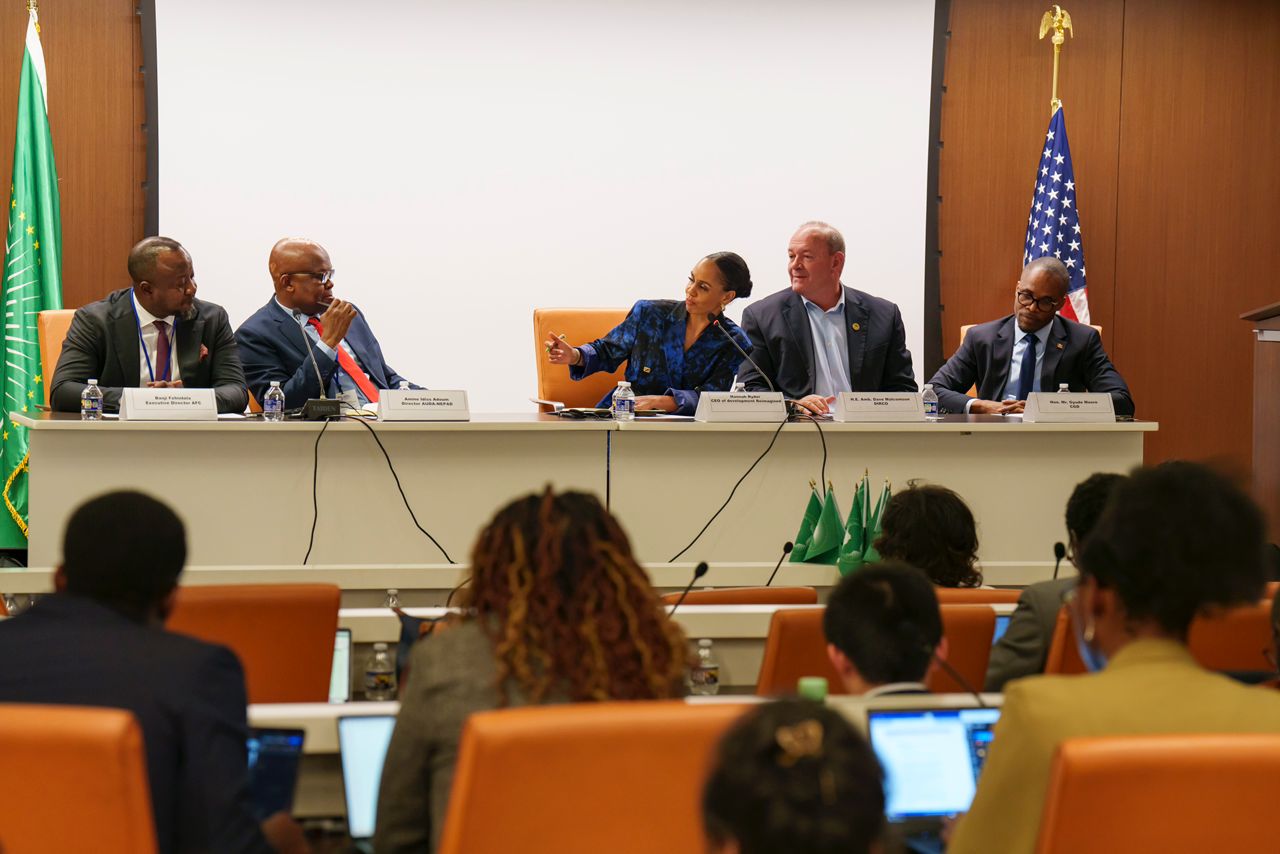Date Published: April 25, 2025.
On April 22nd, 2025, AUDA-NEPAD and Development Reimagined co-hosted an event in Washington, D.C., titled “Enhancing Development Finance Institutions for Cross-Border Regional Infrastructure in Africa.”
The event brought together senior representatives from across the continent’s infrastructure and finance landscape to discuss two interlinked priorities. First, diagnosing the current challenges, limitations, and bottlenecks in cross-border infrastructure development on the continent. Second, identifying practical, actionable solutions to overcome these obstacles.
H.E. Ms. Nardos Bekele-Thomas (CEO, AUDA-NEPAD) set the stage with a powerful keynote, stating that “[Africa] is weighed down by a brutal infrastructure deficit, up to USD 108 billion annually,” a shortfall that continues to constrain productivity, living standards, and long-term socio-economic opportunity.
H.E further stressed that infrastructure gaps are not the root problem, but a symptom of deeper structural issues — from the “African risk premium” in global finance to most of Africa’s labor force remaining in the informal sector, which she described as a “human capital emergency.”
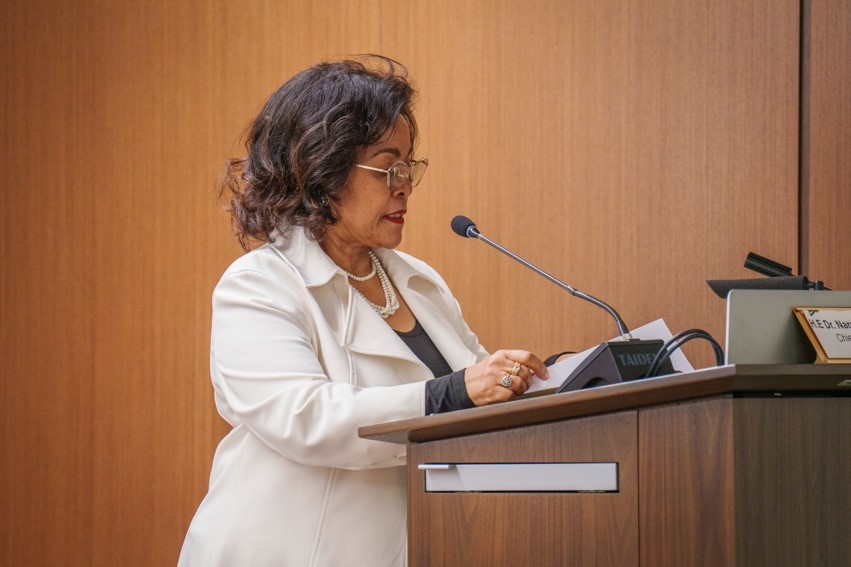
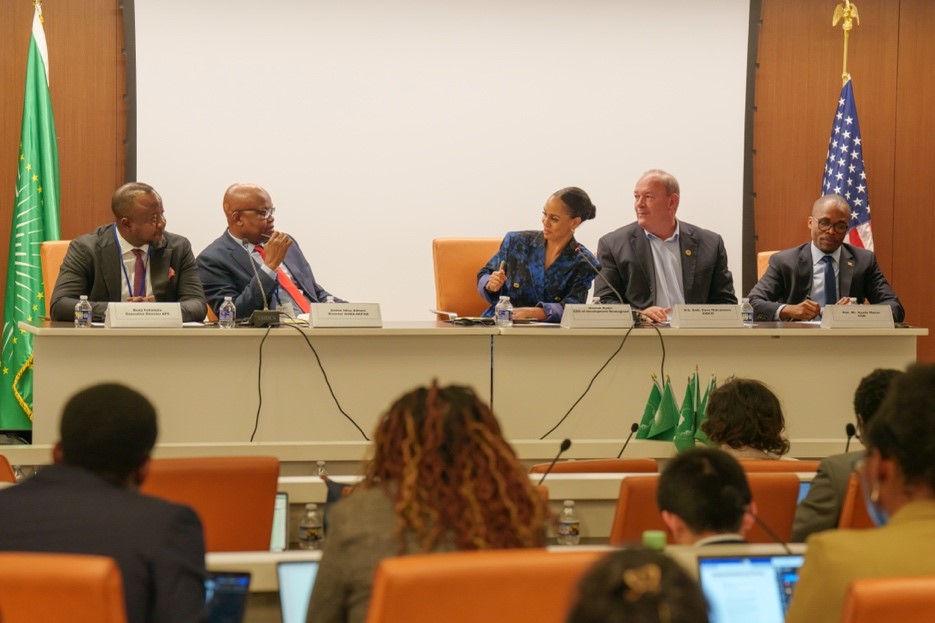
There were four key challenges which the panel emphasized;
First, panelists emphasized the overwhelming impact of high financing costs on cross-border infrastructure in Africa. H.E. Dave Malcomson (Chief Director, DIRCO), stressed that Africa is “adversely impacted by how much it costs to raise the money,” particularly when funds are borrowed in foreign currencies subject to volatility. Hon. Mr. Gyude Moore, (Former Minister of Public Works for Liberia), reinforced this, explaining that low domestic savings across the continent forces governments to rely on external finance, which is increasingly limited and expensive.
Second, the lack of adequate equity was another challenge. Mr. Banji Fehintola, (Executive Director, Africa Finance Corporation), noted that bankable projects often fail to secure funding due to insufficient upfront equity contributions from project sponsors. This challenge is exacerbated by persistent negative perceptions of risk in Africa.
Third, panelists highlighted governance and coordination issues, often unique to cross-border projects. Mr. Amine Idriss Adoum, (Director, AUDA-NEPAD) highlighted that projects often lack clear ownership because they span multiple jurisdictions, which can undermine early-stage planning and accountability.
Fourth, the piecemeal, project-by project nature of cross-border infrastructure has also proven inadequate for delivering at scale. Hon. Moore added that delays in execution often come at a steep cost, noting “sometimes when projects stall, they get more expensive because you pay for idle days”
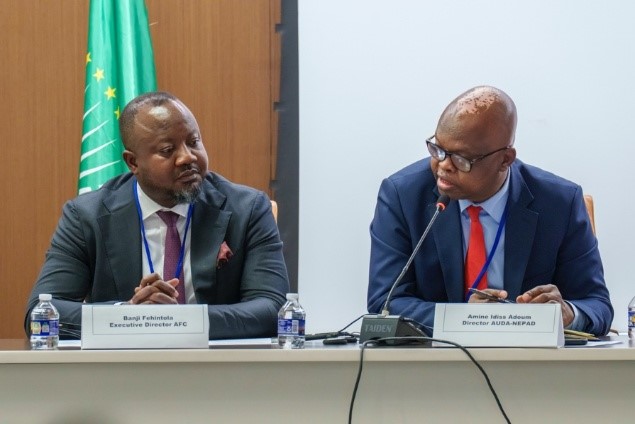
In terms of the way forward, to address the persistent challenges in cross-border infrastructure delivery, the panelists emphasized five measures.
First, the importance of coordinated, African-led solutions. One opportunity lies in improving “soft infrastructure”, particularly the harmonization of regulations. H.E. Malcomson argued that these policies are “as effective as hard infrastructure in opening up trade corridors”, particularly when it comes to maximizing the gains of the African Continental Free Trade Area (AfCFTA).
Second, there is a need to streamline procurement processes and reduce coordination costs. Hon. Moore emphasized that past delays in rollout often stem from uncertainty over procurement frameworks, noting “once we settled the question of whose procurement rules we’re going to use, it cut out most of the problems”.
Third, panelists stressed the importance of building on past successes, rather than reinventing the wheel – highlighting the value of learning from what has worked, both within Africa and internationally, and scaling those models, with the role of AUDA-NEPAD and similar institutions in consolidating best practices.
Fourth, mobilizing domestic and regional capital emerged as another foundational solution. The panelists noted that significant pools of capital, such as pension funds, remain untapped due to outdated regulatory restrictions.
Fifth, African multilateral development banks (MDBs) were identified as essential actors in unlocking finance. Mr. Fehintola emphasized that these institutions not only possess stronger credit ratings than many African sovereigns, but also can ‘de-risk’ complex projects and crowd in private sector financing.
Sixth, H.E. Malcomson highlighted South Africa’s G20 presidency as a key moment to advance Africa’s infrastructure agenda – noting that the G20 Infrastructure Working Group has aligned with African priorities, focusing on three areas i) developing an investable infrastructure pipeline, ii) scaling up blended finance, and iii) delivering cross-border infrastructure for regional development.
To close, Dr. Patrick Ndzana Olomo, (Director, African Union Commission), provided remarks. He stressed that strategic investment is essential for enabling the continent to achieve the 7–10% growth rates required to meet Agenda 2063, and underscored the importance of self-sustainability and self-reliance, reminding participants that “it is our sole responsibility to do it, because no one will do it for us.”
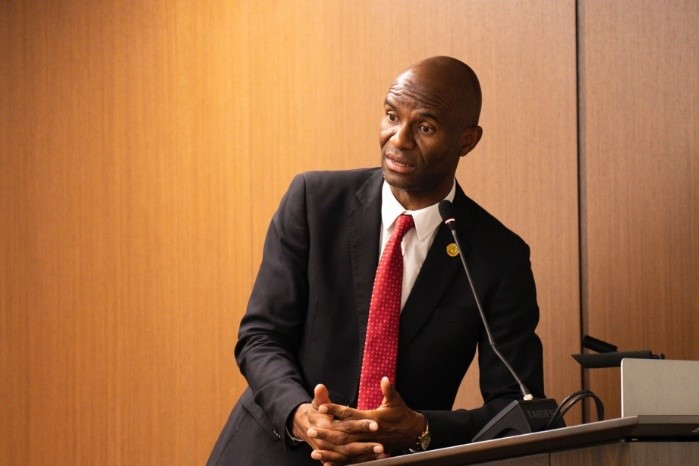
We would like to thank our keynote speakers H.E. Ms. Nardos Bekele-Thomas, CEO of AU-NEPAD and Dr. Patrick Ndzana Olomo, Director of Department of Economic Development, Integration and Trade (EDIT) at the African Union Commission
As well as our panel; H.E. Ambassador Dave Malcomson, Chief Director at South Africa’s Department of International Relations and Cooperation (DIRCO); Hon. Mr. Gyude Moore, Former Minister of Public Works for Liberia and Non-Resident Fellow at the Center for Global Development (CGD); Mr. Amine Idriss Adoum, Director of Infrastructure, Industrialisation, Trade and Regional Integration at the African Union Development Agency (AUDA-NEPAD); and Mr. Banji Fehintola, Executive Director of Financial Services at the Africa Finance Corporation (AFC) – moderated by Ms Hannah Ryder, CEO of Development Reimagined.
Watch full video here:

